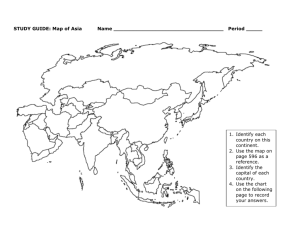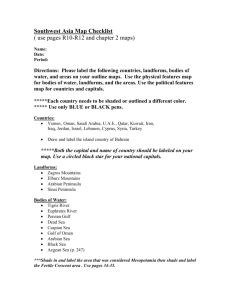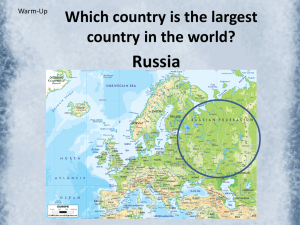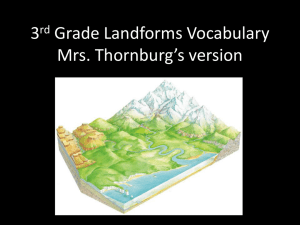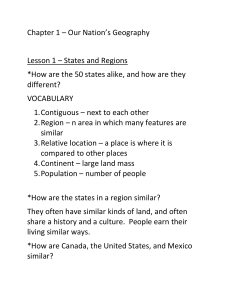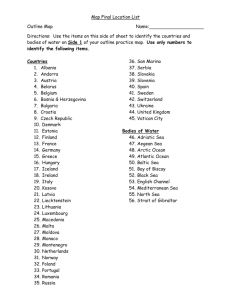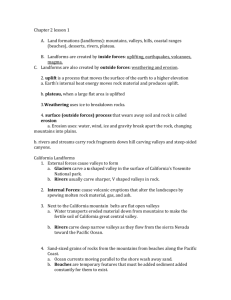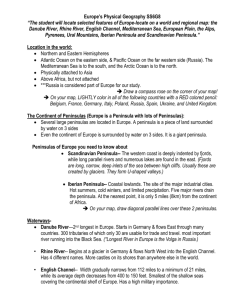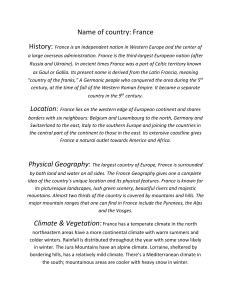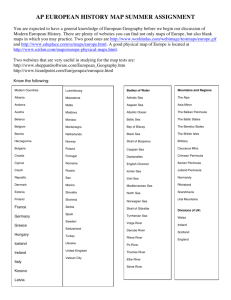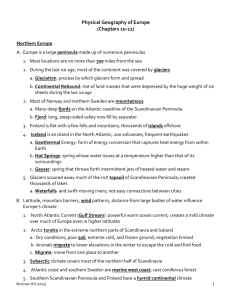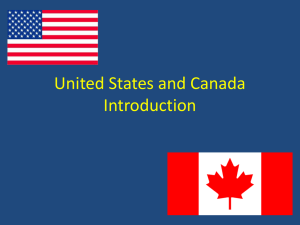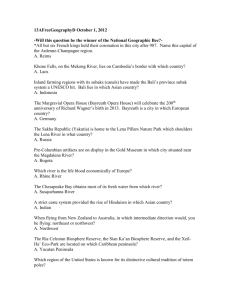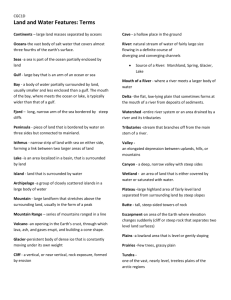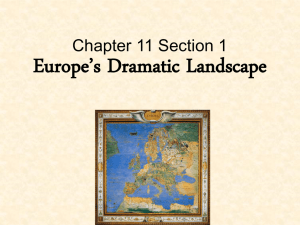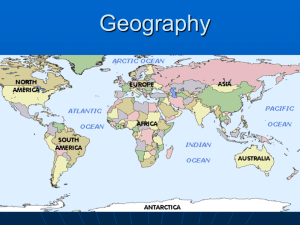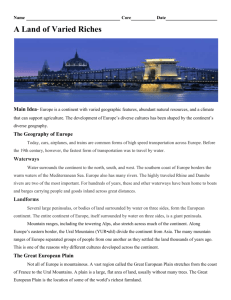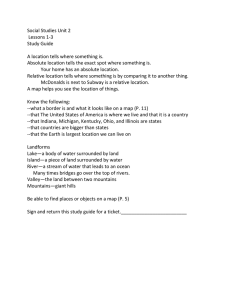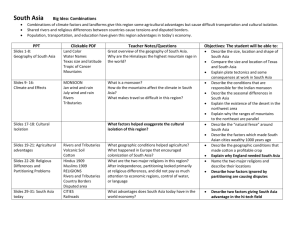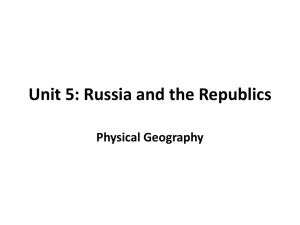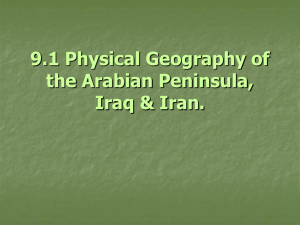Landforms PowerPoint - Ithaca City School District
advertisement
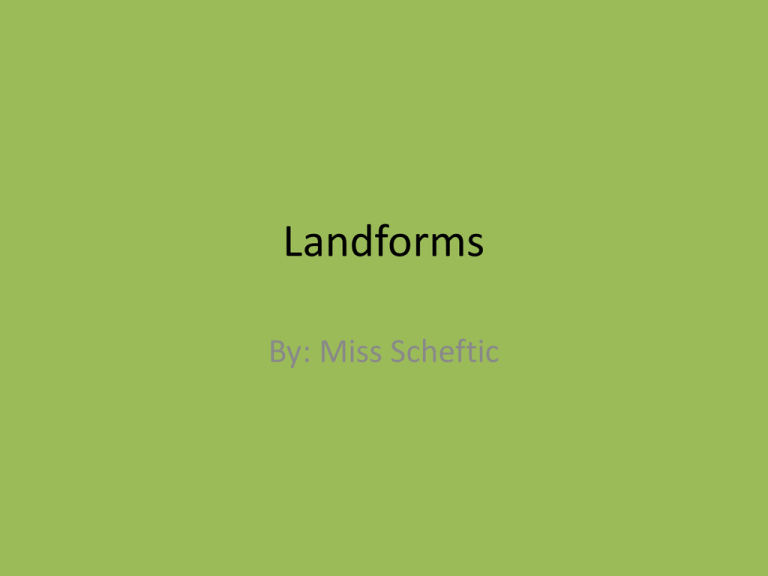
Landforms By: Miss Scheftic Mountains • Definition: landforms that rise above the surrounding terrain • Generally higher than 600 meters • 3 parts: – Summit – Slope – Base • They exist on every continent in the world Plateau • Definition: large flat area of land that rises thousands of feet in the air • They are sometimes surrounded by mountains • The flat part can spread for hundreds or thousands of kilometers • They form when mountains are worn down or when a large flat portion of the earth is pushed up • They cover 45% of the earth’s land surface Valley • Definition: a low area of land between hills or mountains • Usually have a river or stream flowing through it • 2 different shapes/kinds of valleys – V shaped: caused by erosion and rivers – U shaped: formed by glaciers moving • Most valleys are usually U-shaped Savanna (plain) • Definition: rolling grassland scattered with shrubs and a few trees • Have only 2 seasons: – A very long dry winter – A very wet summer • They can be found in: – Africa – South America – Northern Australia Source: http://www.blueplanetbiomes.org/savanna.htm Delta • Located at the mouth of a river • It forms when mud, silt, sand and gravel settle to the bottom of a river at its mouth • Usually occurs when the river enters a large body of calm water • They exist all over the world except at the poles River • Definition: body of fresh water moving over the earth • Bigger than streams • Can be both natural and man-made • Rivers empty into larger bodies of water • They flow from a higher elevation to a lower elevation Lakes • Definition: bodies of freshwater surrounded by land • Range in size from less than one acre to several thousand acres • Usually fed by rivers Peninsula • Definition: elongated shape of land that projects out into a body of water • Almost completely surrounded by water • Can be found all over the world: – Florida – Mexico’s Baja peninsula – Peloponnesian peninsula – Arabian peninsula Island • Definition: a piece of land surrounded by the sea on all sides • 2 different kinds of islands – Continental: have the same plants and animals as the continent near it – Oceanic: have completely different plants and animals • Some are volcanoes that have built up under the ocean Bay • Definition: a body of water partially surrounded by land • Connects to the sea • Smaller than a gulf • Some examples include: – San Francisco bay – Hudson Bay – Chesapeake Bay Wetlands (swamps) • Definition: areas where water covers the soil, or is at or near the surface of the soil all year • Found on every continent except for Antarctica • Contains water that is static or flowing, fresh, brackish or salt • Several different kinds: – Tidal or coastal: found along the Atlantic, Pacific, Alaskan, and Gulf coasts – Non-tidal or inland: most common on floodplains along rivers and streams Highlands • Definition: a hilly or mountainous high area of a country • The most famous ones are the Scottish Highlands Basin • An area of land where surface water from rain, melting snow, or ice meet at a single point • Then the water joins another body like a river, lake, reservoir, wetland, sea, or ocean Mouth of the River • Definition: the opening of a river where the water flows into another body of water • Where the delta is formed River Source • Definition: the original point from which the river flows • Or the place where the river begins – Can be a lake, a marsh, a spring, or a glacier
